
Thomas Jonathan "Stonewall" Jackson was a Confederate general and military officer who served during the American Civil War. He played a prominent role in nearly all military engagements in the eastern theater of the war until his death. Military historians regard him as one of the most gifted tactical commanders in U.S. history.

The Army of Northern Virginia was the primary military force of the Confederate States of America in the Eastern Theater of the American Civil War. It was also the primary command structure of the Department of Northern Virginia. It was most often arrayed against the Union Army of the Potomac.
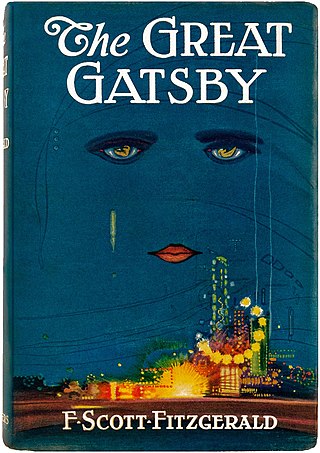
The Great Gatsby is a 1925 novel by American writer F. Scott Fitzgerald. Set in the Jazz Age on Long Island, near New York City, the novel depicts first-person narrator Nick Carraway's interactions with Jay Gatsby, the mysterious millionaire with an obsession to reunite with his former lover, Daisy Buchanan.

Richard Harding Davis was an American journalist and writer of fiction and drama, known foremost as the first American war correspondent to cover the Spanish–American War, the Second Boer War, and World War I. His writing greatly assisted the political career of Theodore Roosevelt. He also played a major role in the evolution of the American magazine. His influence extended to the world of fashion, and he is credited with making the clean-shaven look popular among men at the turn of the 20th century.

Henry Lee III was an early American Patriot and politician who served as the ninth Governor of Virginia and as the Virginia Representative to the United States Congress. Lee's service during the American Revolution as a cavalry officer in the Continental Army earned him the nickname by which he is best known, "Light-Horse Harry". He was the father of Confederate general Robert E. Lee, who led the Army of Northern Virginia against the Union Army during the American Civil War.

Andrew Stevenson was an American politician, lawyer and diplomat. He represented Richmond, Virginia in the Virginia House of Delegates and eventually became its speaker before being elected to the United States House of Representatives; its members subsequently elected him their Speaker. Stevenson also served in the Jackson administration for four years as the U.S. ambassador to the United Kingdom before retiring to his slave plantation in Albemarle County. He also served on the board of visitors of the University of Virginia and briefly as its rector before his death.

The Leopard's Spots: A Romance of the White Man's Burden—1865–1900 is the first novel of Thomas Dixon's Reconstruction trilogy, and was followed by The Clansman: A Historical Romance of the Ku Klux Klan (1905), and The Traitor: A Story of the Fall of the Invisible Empire (1907). In the novel, published in 1902, Dixon offers an account of Reconstruction in which he portrays a Reconstruction leader, Northern carpetbaggers, and emancipated slaves as the villains; Ku Klux Klan members are anti-heroes. While the playbills and program for The Birth of a Nation claimed The Leopard's Spots as a source in addition to The Clansman, recent scholars do not accept this.
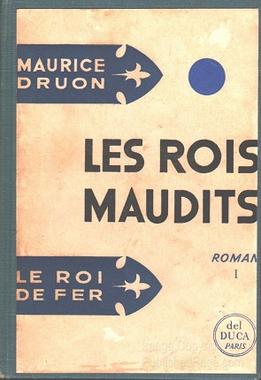
The Accursed Kings is a series of seven historical novels by French author Maurice Druon about the French monarchy in the 14th century. Published between 1955 and 1977, the series has been adapted as a miniseries twice for television in France.
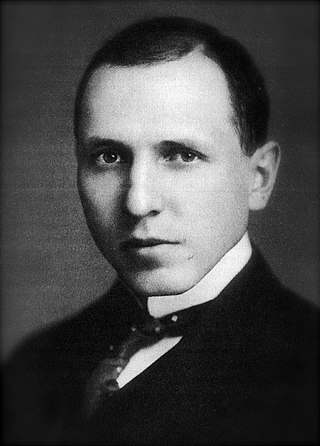
Douglas Southall Freeman was an American historian, biographer, newspaper editor, radio commentator, and author. He is best known for his multi-volume biographies of Robert E. Lee and George Washington, for both of which he was awarded Pulitzer Prizes.
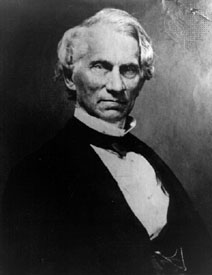
Christopher Gustavus Memminger was a German-born American politician and a secessionist who participated in the formation of the Confederate States government. He was the principal author of the Provisional Constitution (1861), as well as the founder of the Confederate financial system. As the first Confederate States Secretary of the Treasury, Memminger was the principal author of the economic policies of Jefferson Davis's administration.

Across the River and Into the Trees is a novel by American writer Ernest Hemingway, published by Charles Scribner's Sons in 1950, after first being serialized in Cosmopolitan magazine earlier that year. The title is derived from the last words of Confederate States Army General Thomas J. "Stonewall" Jackson, who was mortally wounded by friendly fire during the American Civil War: “Let us cross over the river and rest under the shade of the trees.” In the 19th century, this was understood to refer to the Jordan River and the passage to death and afterlife in Christianity.
Davis Alexander Grubb was an American novelist and short story writer, best known for his 1953 novel The Night of the Hunter, which was adapted as a film in 1955 by Charles Laughton.
Harry Peter McNab Brown Jr. was an American poet, novelist, and Academy Award-winning screenwriter.

Maxwell Struthers Burt, was an American novelist, poet, and short-story writer.
American literary regionalism, often used interchangeably with the term "local color", is a style or genre of writing in the United States that gained popularity in the mid-to-late 19th century and early 20th century. In this style of writing, which includes both poetry and prose, the setting is particularly important and writers often emphasize specific features, such as dialect, customs, history and landscape, of a particular region, often one that is "rural and/or provincial". Regionalism is influenced by both 19th-century realism and Romanticism, adhering to a fidelity of description in the narrative but also infusing the tale with exotic or unfamiliar customs, objects, and people.
Events from the year 1863 in the United States.

The Voices of Glory is a 1962 novel by American author Davis Grubb.
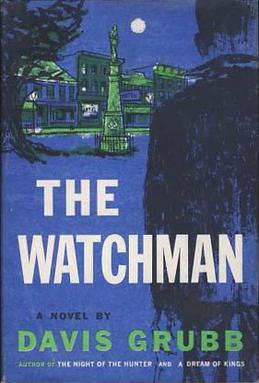
The Watchman is a 1961 novel by American author Davis Grubb.

A Tree Full of Stars is a 1965 novel by American author Davis Grubb.
Hornbrook is a surname. Notable people with the surname include:
















